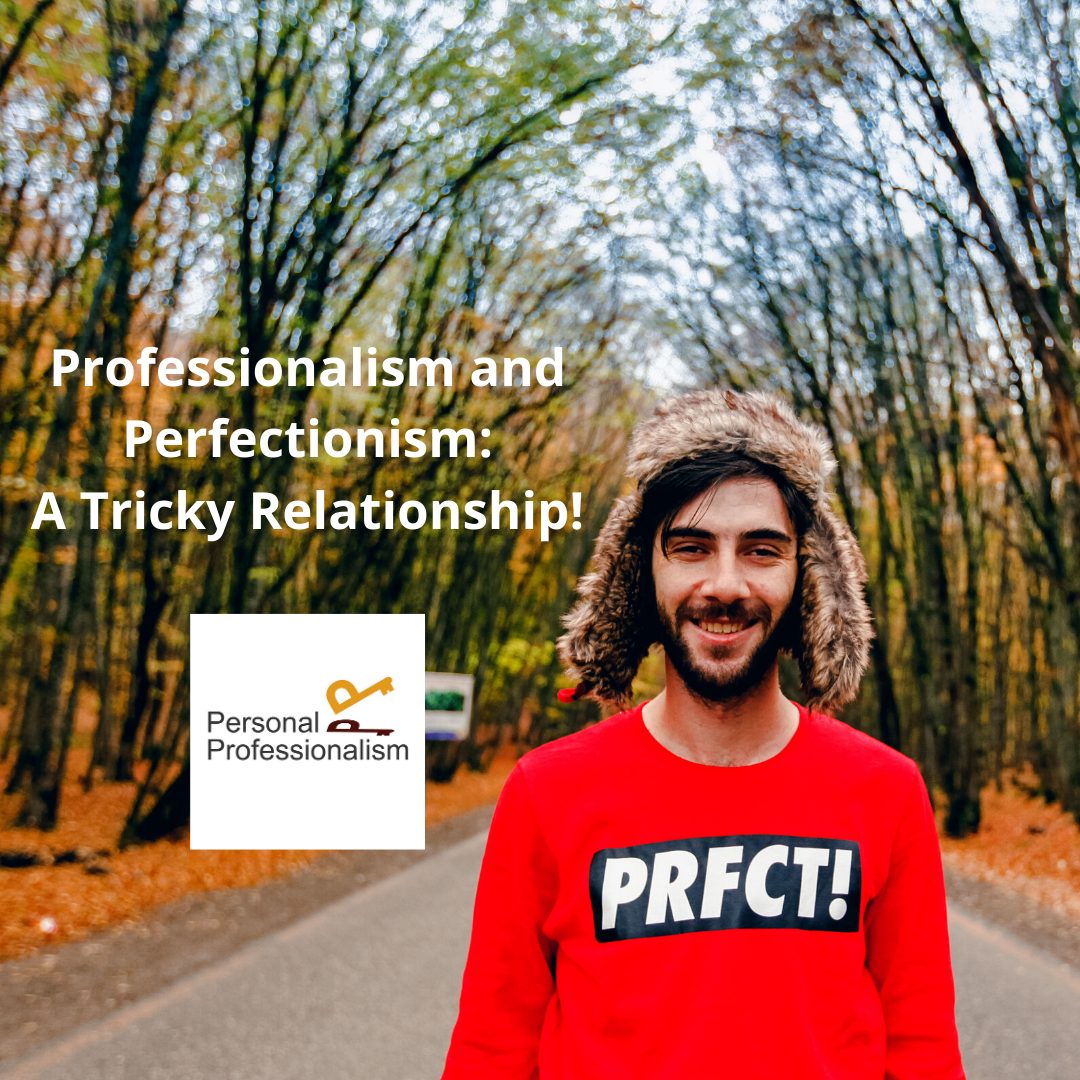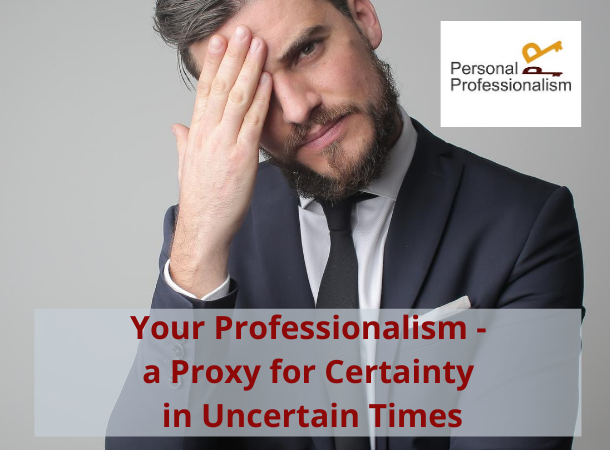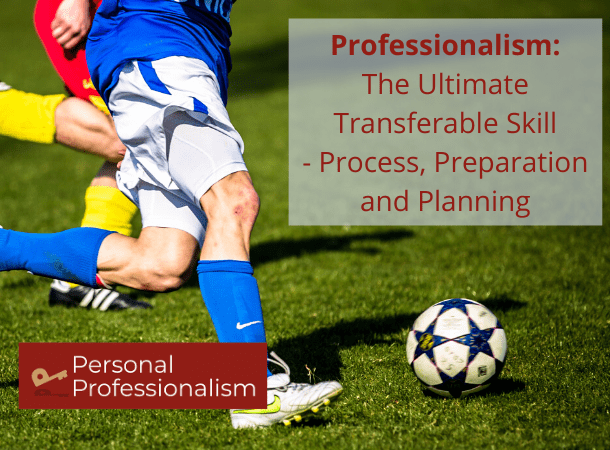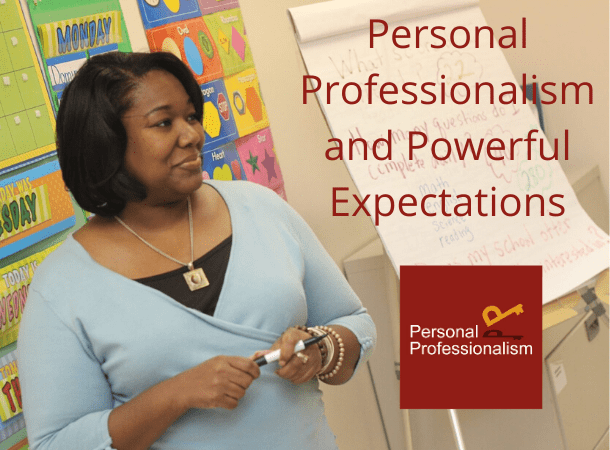Professionalism and Perfectionism: A Tricky Relationship

A Tale of Two Consultancies.
A quick story about two management consultancies; one a big, prestigious agency and the other a tiny boutique agency.
My friend, a former practitioner with the big, prestigious agency, once told me that they did not consider their job done until the last full stop on the last paragraph of the last page of their client reports was approved and signed off.
As a result, their clients received amazingly insightful reports of the highest quality.
Perfect.
The tiny boutique agency found a niche market in helping some of the big consultancy’s clients decipher and understand the big consultancy’s reports; to identify which recommendations were achievable and advise how to implement those recommendations.
The big consultancy brought great prestige to the client and to the managers who engaged them. But what did those clients really, actually get?
They ‘got’ that report. Yes, they got that amazingly insightful but utterly indecipherable and impractical report. Hence a market was created for the boutique agency.
This is NOT a criticism of the big consultancy (in fact, if you’re reading this and you know who you are, I’m available!), but an interesting case study in the tussle between qualitative perfectionism and the practicalities of professionalism.
Although, if I were to have a criticism, it would be that in their pursuit of perfection, they can sometimes focus on the highest possible quality of research and insight at the expense of what is actually needed.
The wrong definition?
Perhaps part of the problem is the different nuances of meaning of the words ‘perfect’.
Quality. In my experience, the most common usage of ‘perfect’ refers to high quality or excellence. A diamond might be seen as being ‘perfect’ because of its remarkably high quality.
It is beautiful; it is without flaw; it is perfect.
Completion. A different meaning is that of ‘completion’; in law, a contract is perfected if it is complete or, more precisely, if all necessary conditions of the contract are satisfied. In language, ‘perfect’ past tenses refer to a completed action compared with ‘imperfect’ actions that are ongoing and not complete.
Fit. The nuanced meaning of ‘perfection’ that is most relevant to professionalism is that of ‘fit’. A ‘perfect fit’ means that something that ideally meets requirements – that might be the best fit in terms of quality, quantity or whatever other relevant measure.
And so to ‘fit’.
It’s simply true that there are times when a piece of plastic is a better solution than diamond encrusted gold.
For professionals, it’s simply true that sometimes good enough really is good enough.
It’s also true that ‘shoddy’ is not good enough – ever.
Professionals work at a level of competence and quality that meets the needs of our clients and is worthy of payment. Sometimes our work outcome has to be diamond-encrusted gold; but it’s also true that sometimes our work has to be a mere piece of plastic.
The implications for professionals.
Embrace the ‘perfect fit’ meaning-nuance: if you’ve been a tertiary student, you’ll know that the advice for tackling exam question essays is to ‘answer the question and only answer the question’. Students are advised not to download everything they know about a topic in exams and then expect a good mark. The best (dare I say ‘perfect’!) answers are those that respond to the question by applying the knowledge they have gained through study. They are advised to be specific and to use their knowledge to craft an answer.
It is the same for professionals supporting clients or colleagues. A professional will apply their deep knowledge about a subject in order to respond to a client need. A professional will not try to impress by sharing everything they know!
There is a danger that the substance of your support for a client or colleague will be missed if you aim for excellence for the sake of excellence rather than for the sake of substance in the form of meeting a client need.
Quality and complete nuance meanings still have an important place!
‘Quality’ nuance – professionals work to the highest appropriate standard. Members of formal professions have quality standards established for them. In fact, failure to meet those standards can result in having their licence to practice revoked. For the rest of us, we work to a standard that is worthy of payment at a minimum, but certainly to a standard that efficiently delivers the outcome required by our clients.
‘Complete’ nuance – professionals complete their work. We all know people who are great starters of projects but who lose interest and never finish. A true professional will finish because they have made a commitment to do so, no matter how difficult or how much it challenges their personality type.
Effort where it makes the biggest difference: My lovely dad, rest his soul, was a skilled builder. His simple wisdom of ‘measure twice, cut once’ belied a deeper truth. In dealing with clients or colleagues who need your help, spend more effort understanding their needs in a very specific way, advise them using your deep knowledge, frame their needs in a way that shapes your work to meet their needs. Don’t download what you know about cutting wood – understand the need then cut the wood to fit!
This will be done to a high quality, naturally. But the quality will be specific to the actual need. Why spend hours and hours cutting a piece of wood to a ‘perfect’ length, when ‘close enough’ for that part of the job really is good enough. A piece of wood used to fill a space behind a wall does not need to be precisely cut; a wood join on a staircase DOES need to be cut precisely both for aesthetic AND safety reasons – spend your time on that instead!
Ethics of perfectionism: If you do spend hours on work that is of the highest quality but that does not address the needs of the client or colleague, and then you charge your client, that becomes an ethical issue.
See ‘quality perfection’ as a journey: Interestingly, ‘perfection’, like professionalism, perhaps ought to be embraced by professionals as an incomplete journey and not a destination at the end of a completed journey! Perhaps the mindset for professionals is summed up by ‘my best work is ahead of me’ – where I am constantly learning my craft and improving my performance, being able to draw upon my deep insight to serve my clients’ needs (not their ‘wants’) and deliver an outcome that is a fit with their needs.






